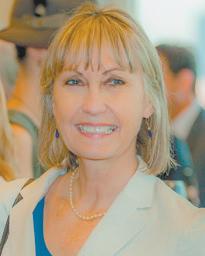
3 minute read
IT’S CITY VS. STATE OVER UTILITY TRANSPARENCY
Imagine this scenario: you go to your local car dealership and ask about the miles per gallon rating of the vehicles that they are selling.
The salesman says: “Sorry, that’s private information that the auto manufacturers don’t want to give you or anyone else in the general public.
commercial energy consumption by 2030, spur the creation of a thousand jobs and, most importantly, reduce carbon emissions by 50 percent by 2030 (from 2013 levels).
Park Pride, an Atlanta-based nonprofit that engages communities to activate the power of parks, is hosting the 15th annual Parks and Greenspace Conference at the Atlanta Botanical Garden on Monday, March 21.
The event is expected to draw 450 attendees, and will offer a diverse array of local and national perspectives on the benefits of play for all ages and demographics. It will also explore the relationship between parks, play and a community’s well-being under the theme, Parks & Play: A Conversation for All Ages.
Speakers will address designing parks and public spaces for playful activation by citizens of all ages, races and abilities. They will dive deep into how playful spaces can change the fabric of a city, explore the physical and mental health benefits of playing in our great outdoors, and discuss the research and design behind great play spaces.
The conference’s keynote speakers include Alex Gilliam, the founder of Philadelphia-based Public Workshop, a nonprofit that engages youth in their communities in playful urban design projects; Robin Moore, Director of the Natural Learning Initiative and author of Nature Play & Learning Places; and Barbara Tulipane, President and CEO of the National Recreation and Park Association (NRPA).
Other featured speakers include James Siegal, CEO of KaBOOM! and local thought leader on play, Cynthia Gentry, founder of Play Atlanta. For more information, visit parkpride.org/conference.
“The manufacturers whose cars aren’t very efficient say that data transparency will hurt their businesses and result in a competitive disadvantage. They lobbied elected officials to pass a law that prohibits making the data available to anyone without their express consent.”
This sort of silliness could never happen, right? Wrong.
If the Building Owners and Managers Association of Georgia (BOMA) has its way at the State Capitol, utility data (energy and water use) for large commercial buildings in Atlanta will be off-limits to prospective tenants and the general public. This is in response to last year’s unanimous passage of a city ordinance that requires precisely such information to reduce commercial energy use.
Brokered after an eight-month stakeholder process, the ordinance requires owners of private and cityowned buildings (more than 25,000 square feet) to benchmark and report annual energy use and conduct an energy audit every 10 years. Waivers and exemptions are readily available, according to Mayor Kasim Reed’s Office of Sustainability, which authored the measure.
In February, Sen. Hunter Hill (R-Smyrna) introduced state legislation (SB 321) that will disable the city’s ordinance by enactment of a Property Usage Protection Act. (The first version of the bill claimed that utility information was a “trade secret,” but that argument was not persuasive.)
SB 321 threatens the right to home rule in every city in Georgia and, in this instance, Atlanta’s efforts to be considered a top-tier sustainable city.
If this BOMA-inspired bill passes, it will stop a program that is expected to: drive a 20 percent reduction in
Scott Selig with Selig Enterprises, a BOMA member, testified in favor of SB 321, saying that he was against making “private data” available to the public, and that the city ordinance “is not fair” to some property owners – apparently those who are wasting our precious energy and water resources. Most of this “private data” is recorded on utility meters that anyone can read outside many buildings at any time.
Major building owners and other stakeholders that support the city ordinance include: Jamestown (Ponce City Market), CBRE, Cushman & Wakefield, JLL, Transwestern, Atlanta Gas and Light, Southwire and Acuity Brands. Along with other industry representatives, they forged a compromise during more than 150 stakeholder meetings.
Transparency is essential to help consumers and tenants make informed decisions in the open market and encourage building owners to reduce energy consumption through investments that will save money and reduce pollution.

Local officials elected by Atlanta residents unanimously voted to support the disclosure of utility data as a smart policy for a progressive city. The state legislature needs to stay out of this city business.
Sally Bethea is the retired executive director of Chattahoochee Riverkeeper (chattahoochee.org), a nonprofit environmental organization whose mission is to protect and restore the drinking water supply for nearly four million people.











